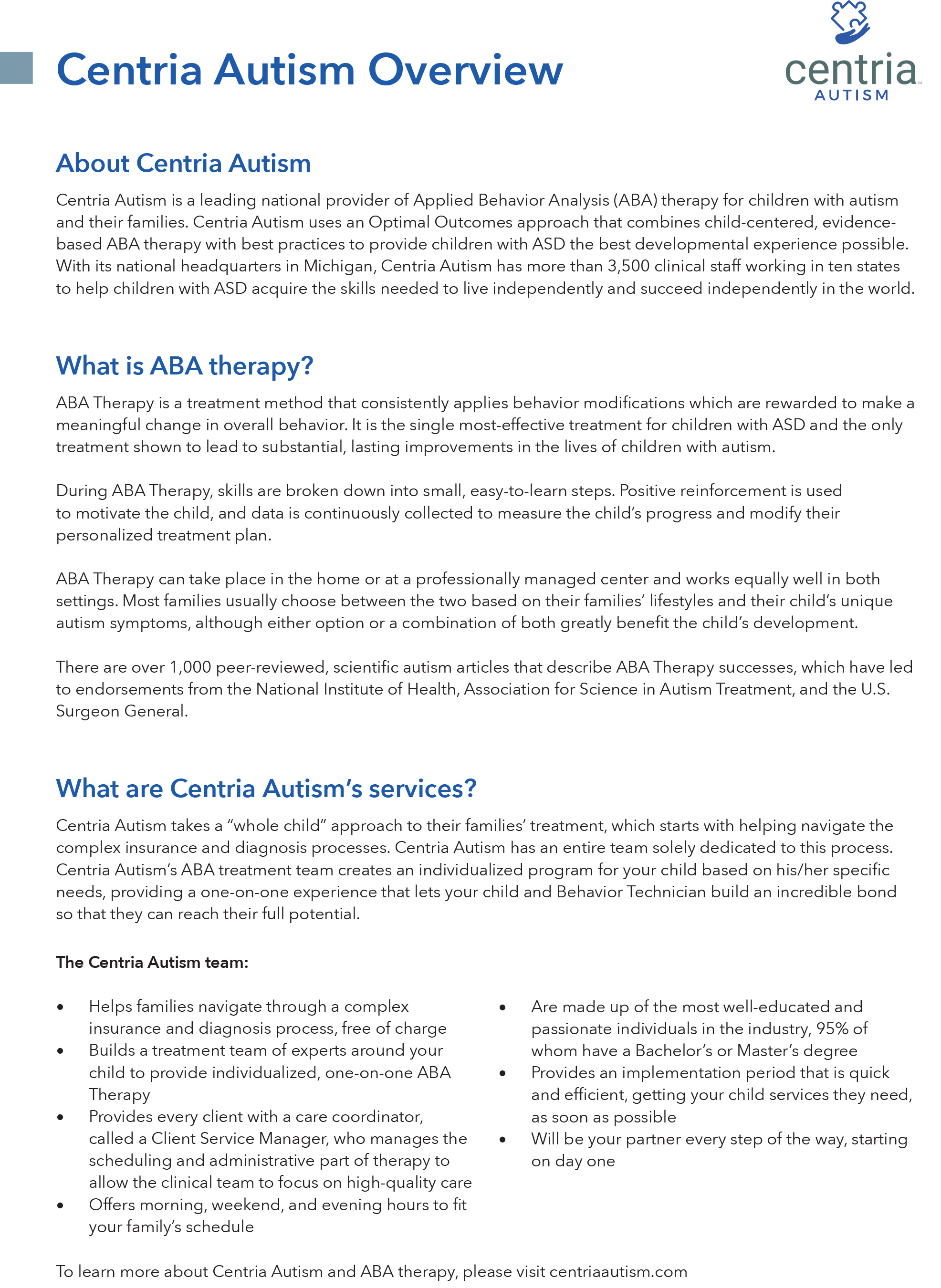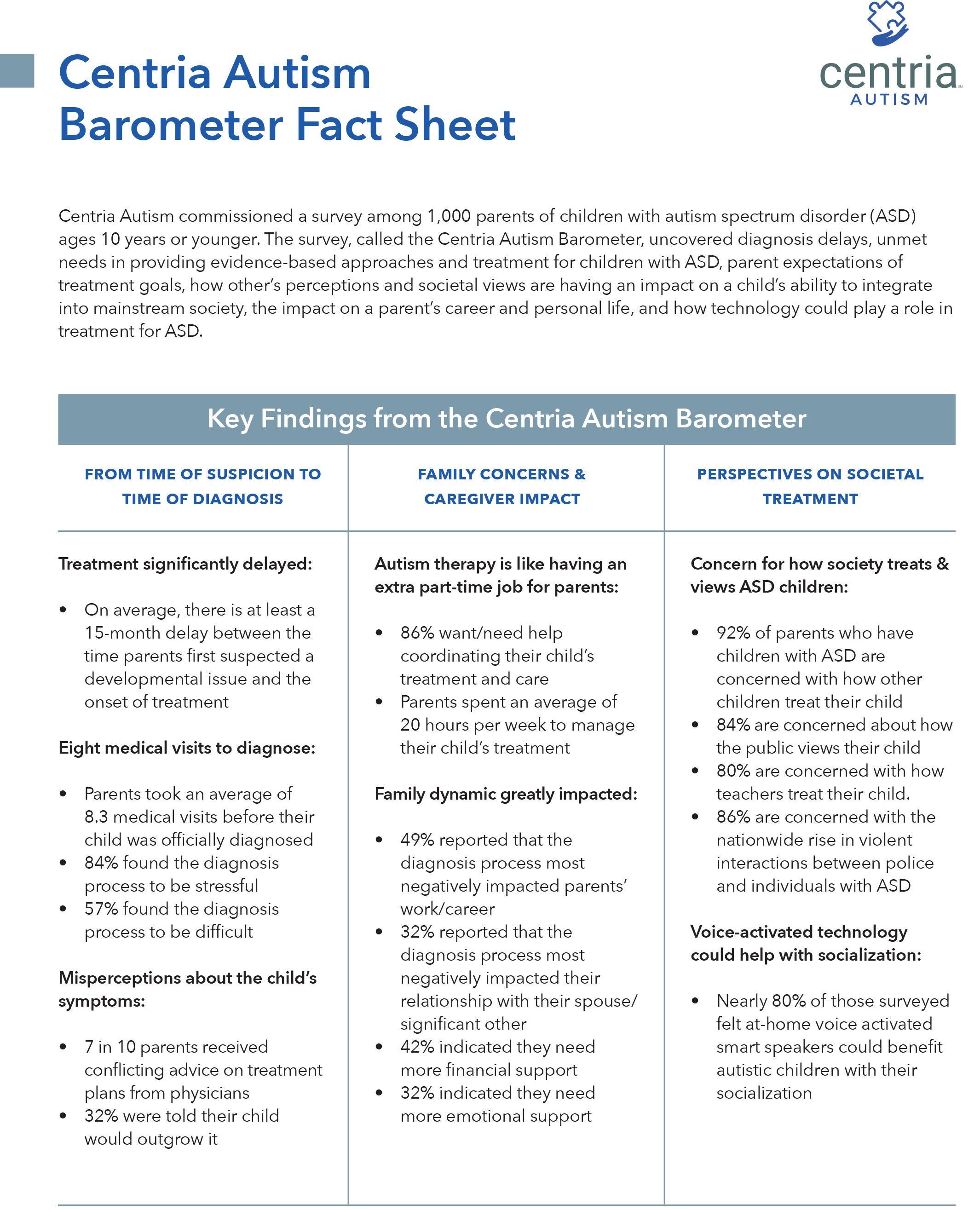One-Third of Parents of Children with Autism Were Told Their Child Would “Grow Out of It”
|
FARMINGTON HILLS, Mich., April 15, 2019 /PRNewswire/ -- A nationwide survey of 1,000 parents of children with autism spectrum disorder (ASD) ages 10 years or younger found that on average, there is at least a 15-month delay between the time parents first suspected a developmental issue and the onset of treatment. Such delays result in lost treatment opportunity which can negatively impact a child's overall development.1 Shockingly, when 32% of parents sought treatment, they were told their child would outgrow it, further delaying access to instrumental treatment. The nationwide survey was commissioned by Centria Autism, a leading provider of therapy based on the principles of Applied Behavior Analysis (ABA) for children with ASD, and was conducted by Wakefield Research.2 Experience the interactive Multichannel News Release here: https://www.multivu.com/players/English/8499551-centria-autism-barometer/ "In speaking with hundreds of families dealing with ASD, we've heard loud and clear that navigating the ASD environment, and especially finding right treatment to meet the specific needs of their child, can be difficult." said Steven Merahn, MD, Chief Medical Officer, Centria Healthcare. "The treatment of any child with autism should be individualized and wholistic. Our team seeks to bring standard-of-care, evidence-based behavioral solutions to families and help individuals navigate the ASD care path to ensure every child has the best developmental experience possible and can achieve their goals and dreams through high-quality ABA therapy and support." ASD is an urgent public health priority in the U.S. As of 2018, an estimated 1 in 59 children have been identified with ASD.3 Of the 3.8 million children born in the U.S. in 2017, between 65,000 and 70,000 are expected to meet the diagnostic criteria for ASD in 2019.4 The inaugural survey, called the Centria Autism Barometer, also exposed unmet needs in providing evidence-based approaches and treatment for children with ASD, parental concern surrounding how others view their child, and the impact on a parent's career and personal life. Additional key findings include:
"As a parent of two young children with autism, I was in deep denial when my first child, Jacob, started presenting symptoms. I didn't know what to do or what services to use to get him treated," said Kayla Schmidt, a parent of children with autism. "Thankfully, I was connected to Centria Autism within a couple weeks, and they've been tremendously helpful in providing Jacob a personalized plan to help him learn and develop based on his own needs. ABA therapy has been very successful for him. Seeing his progress gives me great hope that he will be able to reach his goals and do what he loves later in life." To learn more about the Centria Autism Barometer findings, ASD, ABA therapy, or the services Centria Autism provides, visit www.centriaautism.com. About Centria Autism About ABA Therapy Media Contact: Mary Coyle, Porter Novelli 1 Baio J, Wiggins L, Christensen DL, et al. Prevalence of autism spectrum disorder among children aged 8 years – Autism and Developmental Disabilities Monitoring Network, 11 Sites, United States, 2014. MMWR Surveill Sums. 2018;67(6):1-23. (CDC prevalence estimates are for 4 years prior to the report date.) 


SOURCE Centria Autism |




